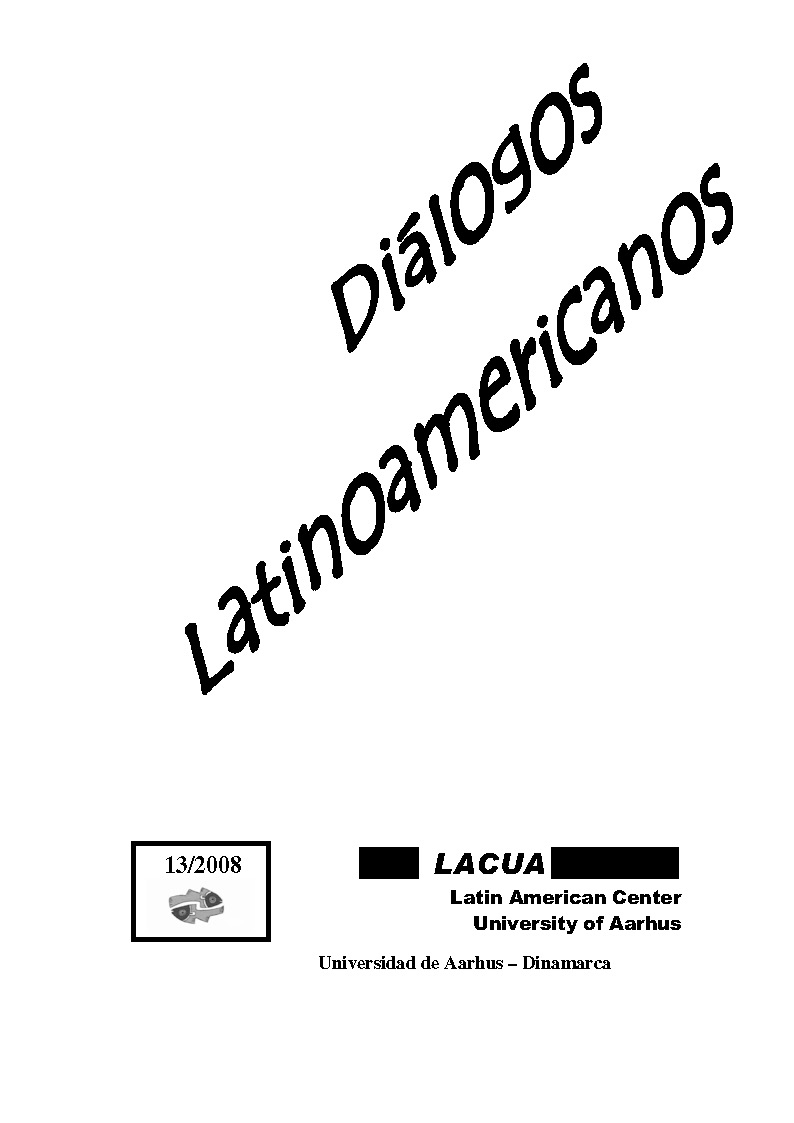Brazil’s Two Africas, or which Africa to find in what Brazil?
DOI:
https://doi.org/10.7146/dl.v9i13.113604Keywords:
Race, racism, Brazil, Africa, Racial democracy, whiteningAbstract
The article investigates the idea of Africa as central to the
imagining of the Brazilian nation. It agues that the popular beliefs
and the black movement differ significantly in their views of
Brazil as well as the images of Africa they each use to explain the
place of black people in the New World. Thereby the meaning of
both Brazil and Africa are a matter of conflict depending on
whether Brazil is seen to be a racial democracy or fraught with
structural racism, and whether Africa is a place of famine, civil
war and deceases having lost its past glory or in fact a glorious
place of proud kings and queen. Each picture of Africa and Brazil
connotes different positions for black Brazilians. The picture is
further complicated by the Roots Tourism from North America
recombining the elements from each to create a place of origin, an
Africa in Brazil.
References
Burdick, John. 1992. Brazil’s Black Consciousness Movement. NACLA Report on the
Americas, 25 (4).
Burdick, John. 1998. The Lost Constituency of Brazil’s Black Consciousness
Movements. Latin American Perspectives, 25 (1).
Domingues, Petrônio. 2005. O mito da democracia racial e a mestiçagem no Brasil
(1889-1930). Diálogos Latinoamericanos 10.
Fernandes, Florestan. 1969. The Negro in Brazilian Society, translated by Jacqueline D.
Skiles, A Brunel & Arthur Rothwell. Columbia University Press.
Freyre, Gilberto. 1964. The Masters and the Slaves, translated by Samuel Putnam. New
York: Alfred A. Knopf.
Jensen, Tina G.. 2002. In Between Contradictions: A White Invention of an African
Tradition in Southeast Brazil, Ph.D.-series no. 22. Institute of Anthropology,
University of Copenhagen.
Kier, Rune. 2007. Race and Agency: Discursive Stories about Race and the Narration
of Hope in Salvador, Brazil. Copenhagen: Akademia.dk.
Pinho, Patricia de Santana. 2004. Reinvençoes da África na Bahia. São Paulo:
Annablume.
Ribeiro, Darcy. 2000. The Brazilian People, translated by Gregory Rabassa. University
Press of Florida.
Segato, R. L.. 1998. The Color-Blind Subject of Myth; Or, Where to find Africa in the
Nation. Annual Review of Anthropology, 27.
Sheriff, Robin E.. 2001. Dreaming Equality. Color, Race, and Racism in Urban Brazil.
New Brunswick, N.J.: Rutgers University Press.
Sjørslev, Inger. 1995. Gudernes rum. Copenhagen: Gyldendal.
Sjørslev, Inger. 2004. Alterity as Celebration, Alterity as Threat. In: Grammars of
Identity/Alterity, Gerd Baumann & Andre Gingrich (eds.), New York: Berghahn
Books.
Skidmore, Thomas E.. 1974. Black Into White. Oxford University Press: New York.
Telles, Edward E.. 2004. Race in Another America. The Significance of Skin Color in
Brazil. Princeton and Oxford: Princeton University Press.
Weber, Max. 1995. Den protestantiske etik og kapitalismens ånd, translated by
Christian Koch. Copenhagen: Nansensgade antikvariat.
Downloads
Published
How to Cite
Issue
Section
License
Counting from volume 31 (2022), articles published in Diálogos Latinoamericanos are licensed under CC-BY 4.0. Read more about the license terms here https://creativecommons.org/licenses/by/4.0/.
No Creative Commons license applied on volumes 1-30. All rights reserved by the authors. Readers may download, read, and link to the articles, but they cannot republish the articles.
With the publication of volume 31 (2022), authors retain the full copyright to their articles and give Diálogos Latinoamericanos the right to the first publication. Authors also retain copyright to earlier versions of manuscripts, such as the submitted (pre-print) and the accepted manuscript (post-print).
Copyright to articles published in volumes 1-30 is held by the authors.





